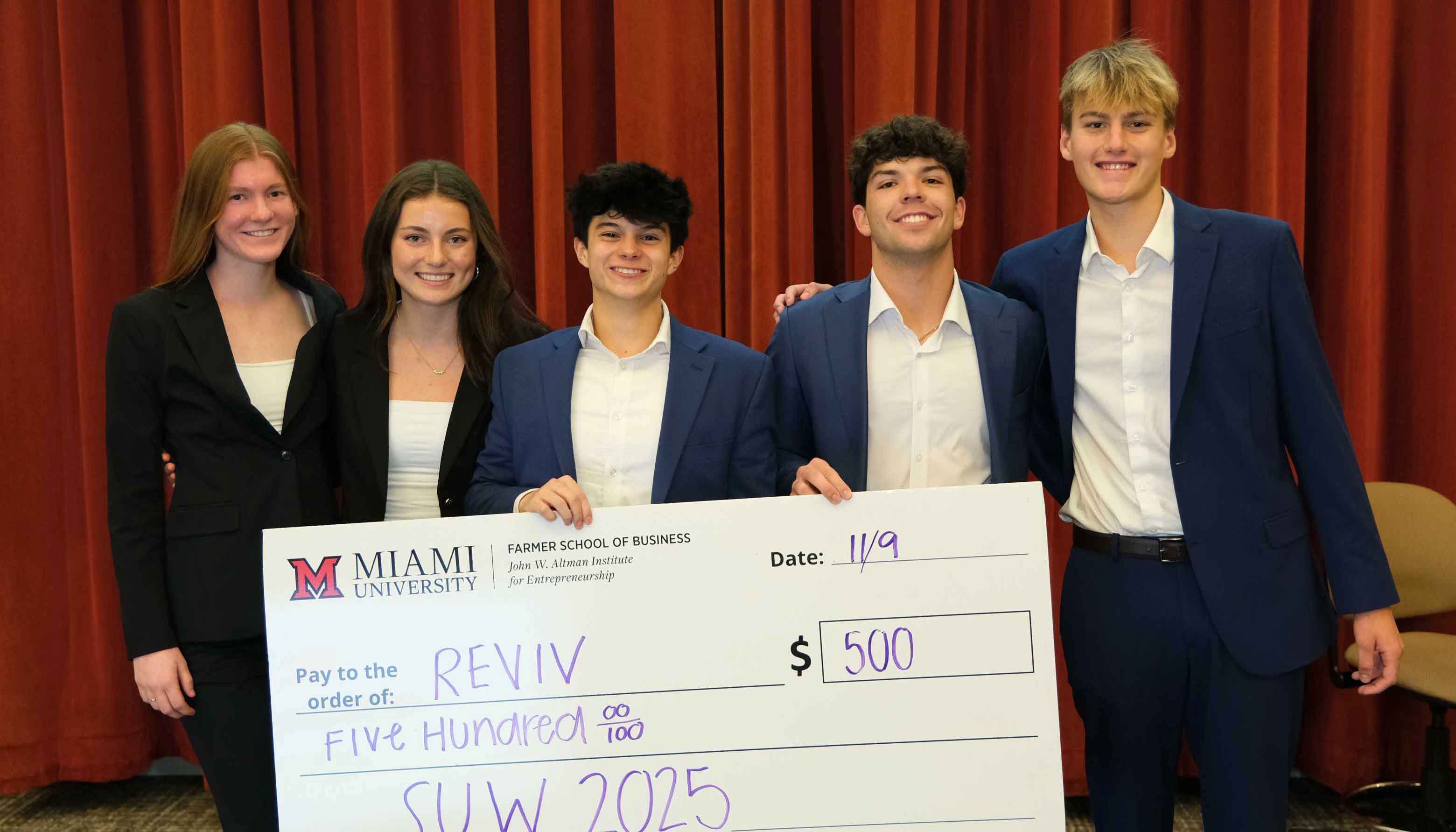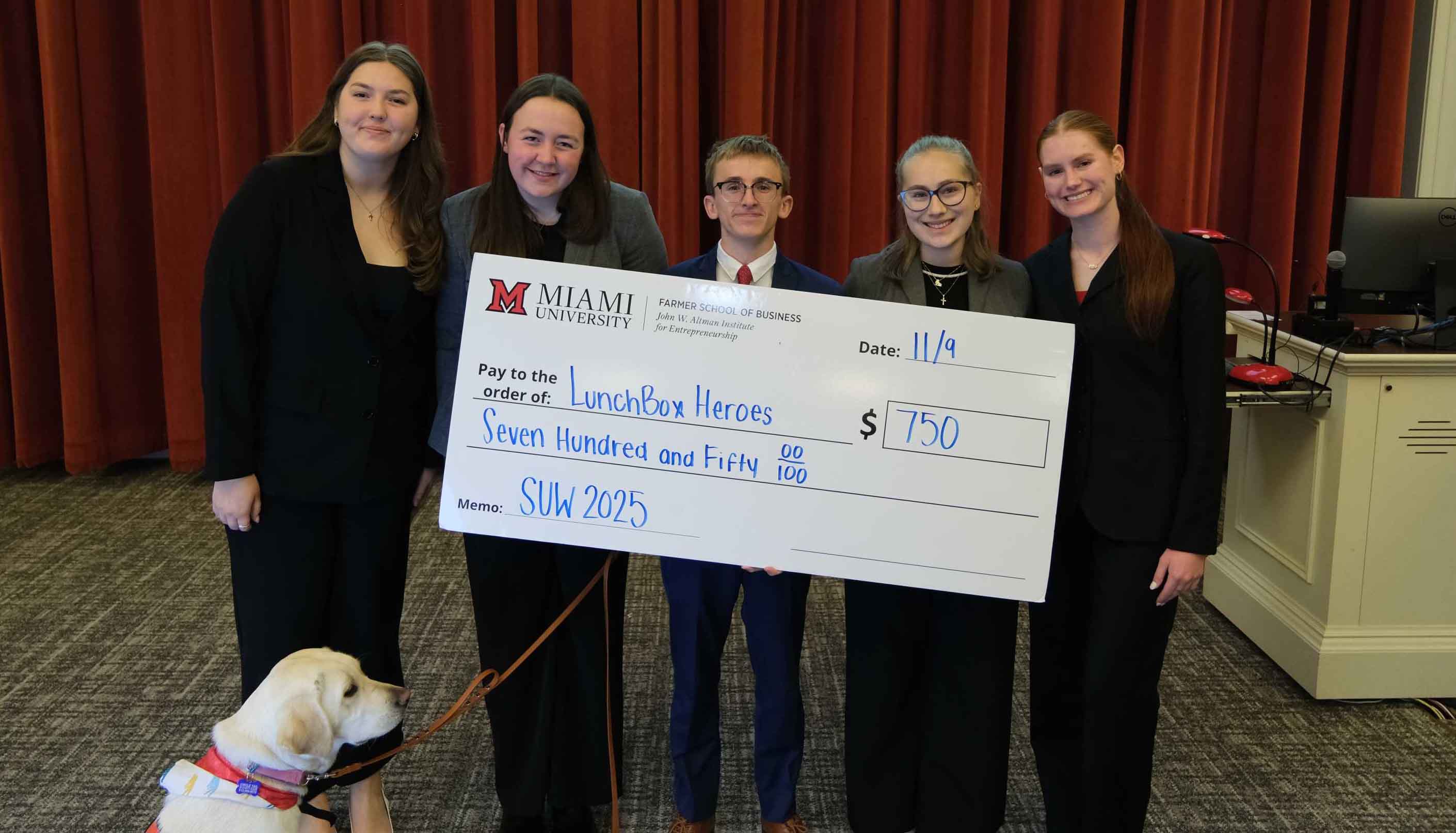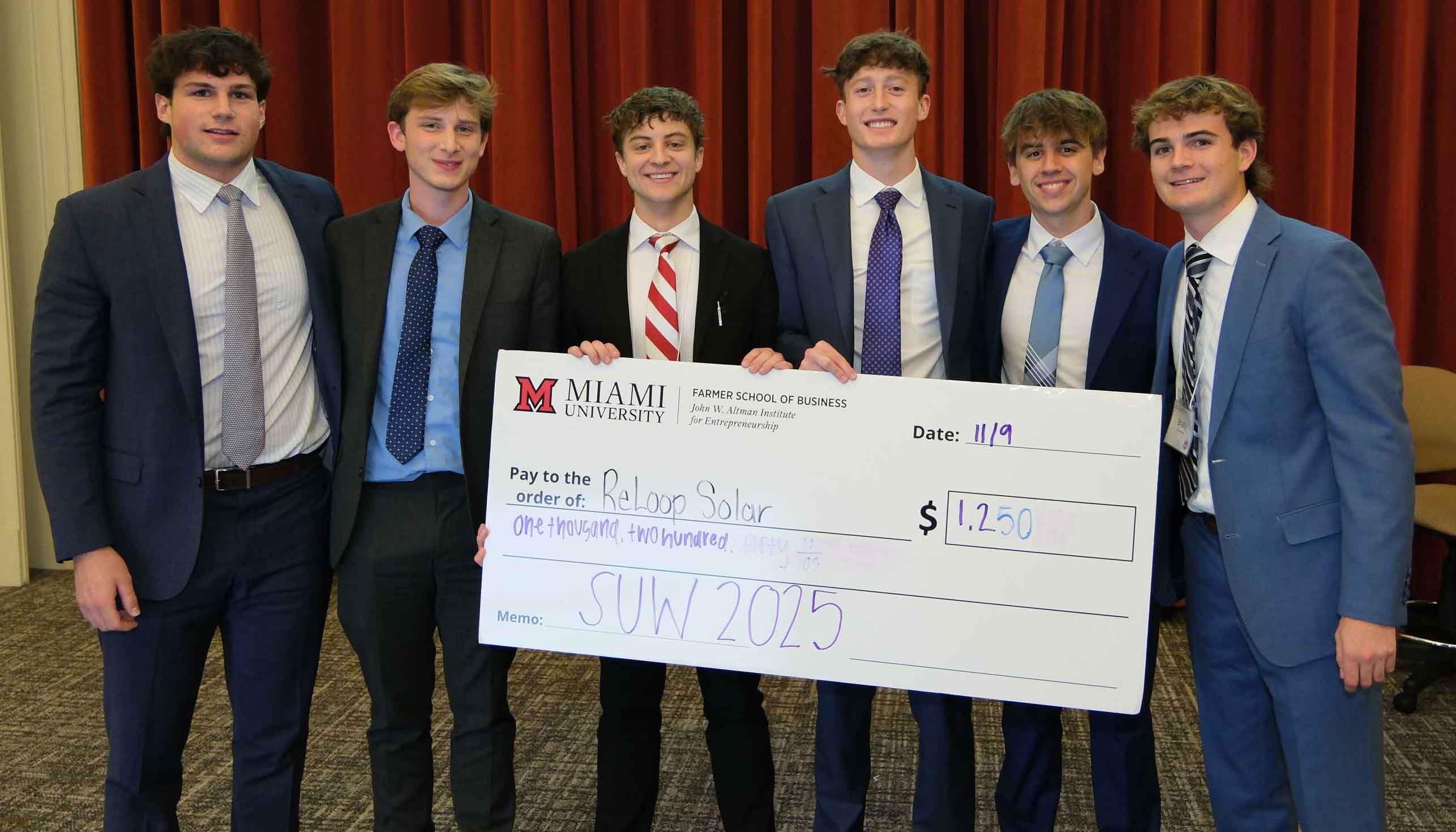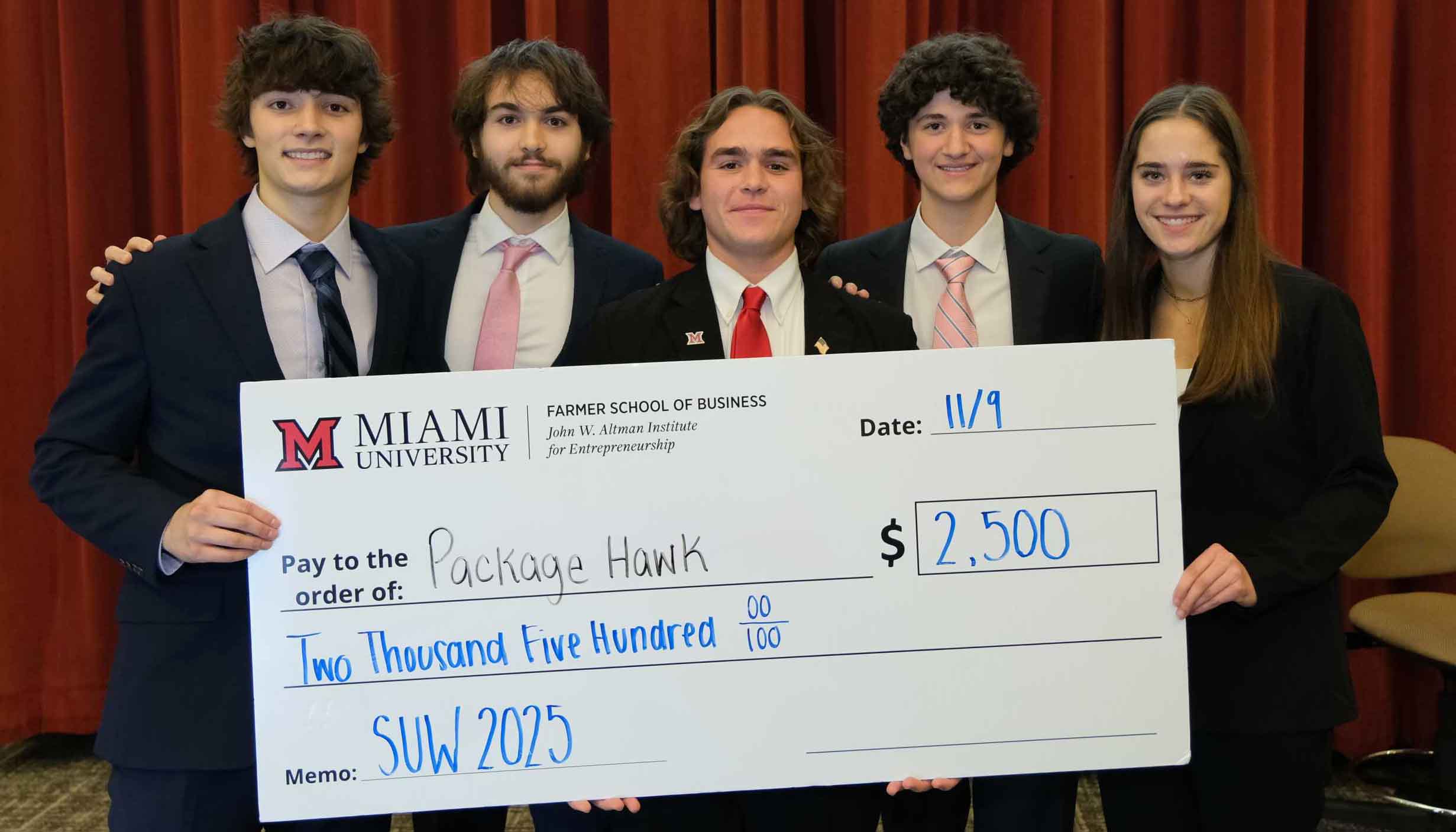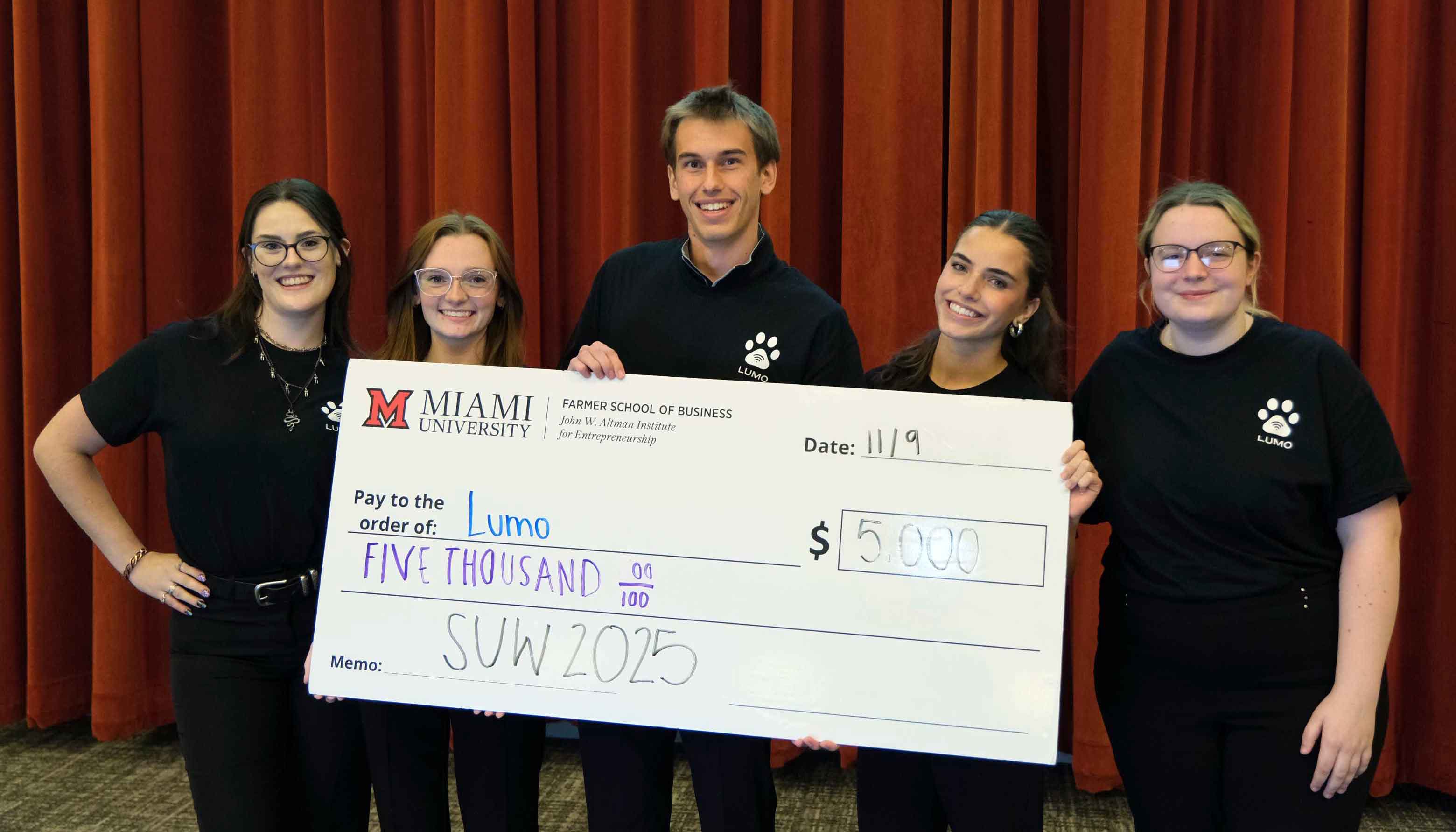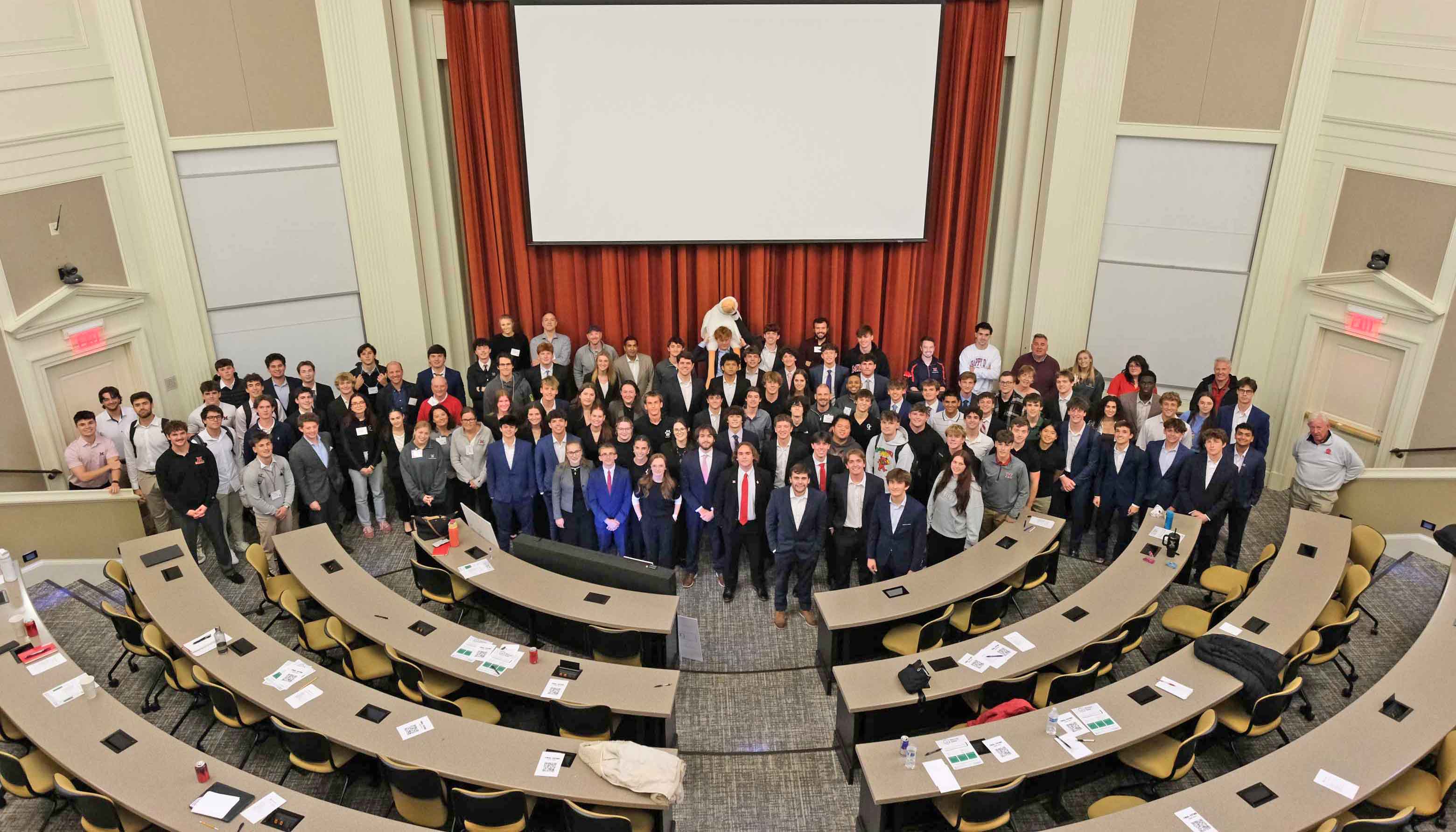Startup Weekend puts students and their ideas to the test
Nearly 100 Miami University students take part in latest iteration of annual competition
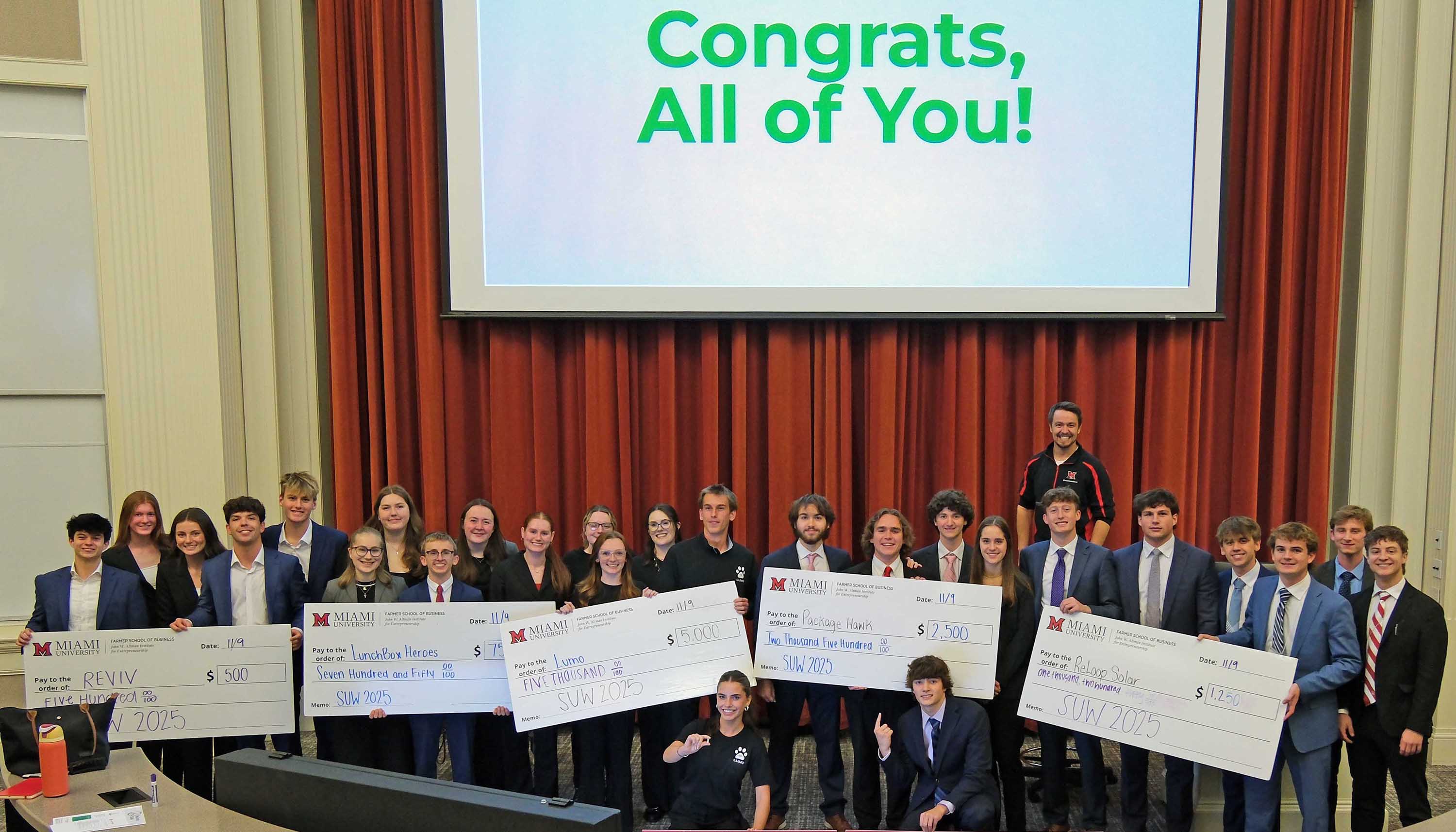
Startup Weekend puts students and their ideas to the test
There are many ways to spend a weekend in Oxford, and nearly a hundred Miami University students spent last weekend doing something a bit different than most – working to create a business over the course of Startup Weekend at the Farmer School of Business.
“I had this idea coming in, and I just knew I needed to find a good team and we could work together and get something done,” first-year Accountancy and Supply Chain Management and Operations major Barrett LeMaster said. “For me, this was a legit 40-ish hours straight of thinking. I think I got three hours of sleep this weekend.”
The weekend starts with participants pitching their ideas for a business, followed by attendees choosing which projects they would most like to work on. More than half of the students taking part made a pitch this year, resulting in 19 ideas being chosen as teams of four to six students tackled each of them.
The rest of the weekend was spent defining the problem being solved, refining the ideas, talking with mentors, and validating the need for their idea via customer research.
“What stuck with me were definitely the conversations I had with the mentors. A lot of the pieces of advice they gave us may not have been applicable directly to what we were doing, but they're invaluable later in life,” sophomore Marketing and Entrepreneurship major Tanner Lowe said. “They taught us skills that we can use in all of our other classes and in our jobs in the future.”
Teams pitched their ideas to judges on Sunday morning, and the top five teams advanced to the finals on Sunday afternoon, where they split $10,000 in prize money, an amount that was increased from $5,000 by Miami University alumna Amy Altman shortly before the weekend began.
The winning teams were:
- First place and $5,000: LUMO (Lexie Margelis, Tanner Lowe, Jane Spelman, Addison Hall, and Ayala Galili), an implantable GPS-enabled microchip integrated with Apple’s Find My network for real-time tracking of pets.
- Second place and $2,500: Package Hawks (Barrett LeMaster, Luke Hoff, Nico Tharp, Olivia Schaurer, and Noah Lindner), a student-run delivery service using couriers to bring packages from the campus mail center directly to dorms.
- Third place and $1,250: ReLoop Solar (Ryan Gustis, Brady Krautkramer, Gabe Barlow, Ben McCarthy, Luke Schramko, and Ty Reilly), a solar panel recycling and recovery company that reclaims valuable materials from decommissioned residential panels.
- Fourth place and $750: Lunchbox Heroes (Andrew Rutt, Addison Lemon, Claire Schweitzer, Averie Backhaus, and Laurel Logemann), a pre-made kids’ meal subscription service delivering fresh, healthy, child-centered lunches to families’ homes.
- Fifth place and $500: RevIV (Wyatt Borbi, Kiely Kemph, Sean Rhoades, Henry Terry, and Elise Moeller), a mobile intravenous therapy bus that visits campus locations, offering hydration and vitamin treatments to prevent illness, reduce stress, and enhance student performance.
“I felt this year there was more of a commitment to really finding your way through entrepreneurship than I’ve seen in any other Weekend, and it was really nice to see,” mentor Mary Furrie, CEO of Furrie Consulting, told students.
“It was really cool to see, even in some of these presentations, how I could tell you refined and took some of our advice and applied it,” mentor and Monster Truck Ninja CEO Isaac Woodby said. “I thought you had really good energy, really good storytelling. It was really engaging.”
Margelis, a junior Marketing and Entrepreneurship major, said taking part in Startup Weekend – and winning – helped her work through self-confidence issues.
“To be able to create something within 48 hours and produce it to this quality, it's an honestly amazing experience, a look into what like the real world could feel like,” she said. “We came up with a vet tech product, found some viability, discovered it can work, and realizing that you can actually do anything you want to.”
“We take away so many lessons from this. I found out I could work for 30 hours straight and physically be here, applying my brain power to something,” LeMaster said. “Seeing something come from an idea to literally a polished product. If you put your mind to something, you're going to be able to do it.”
